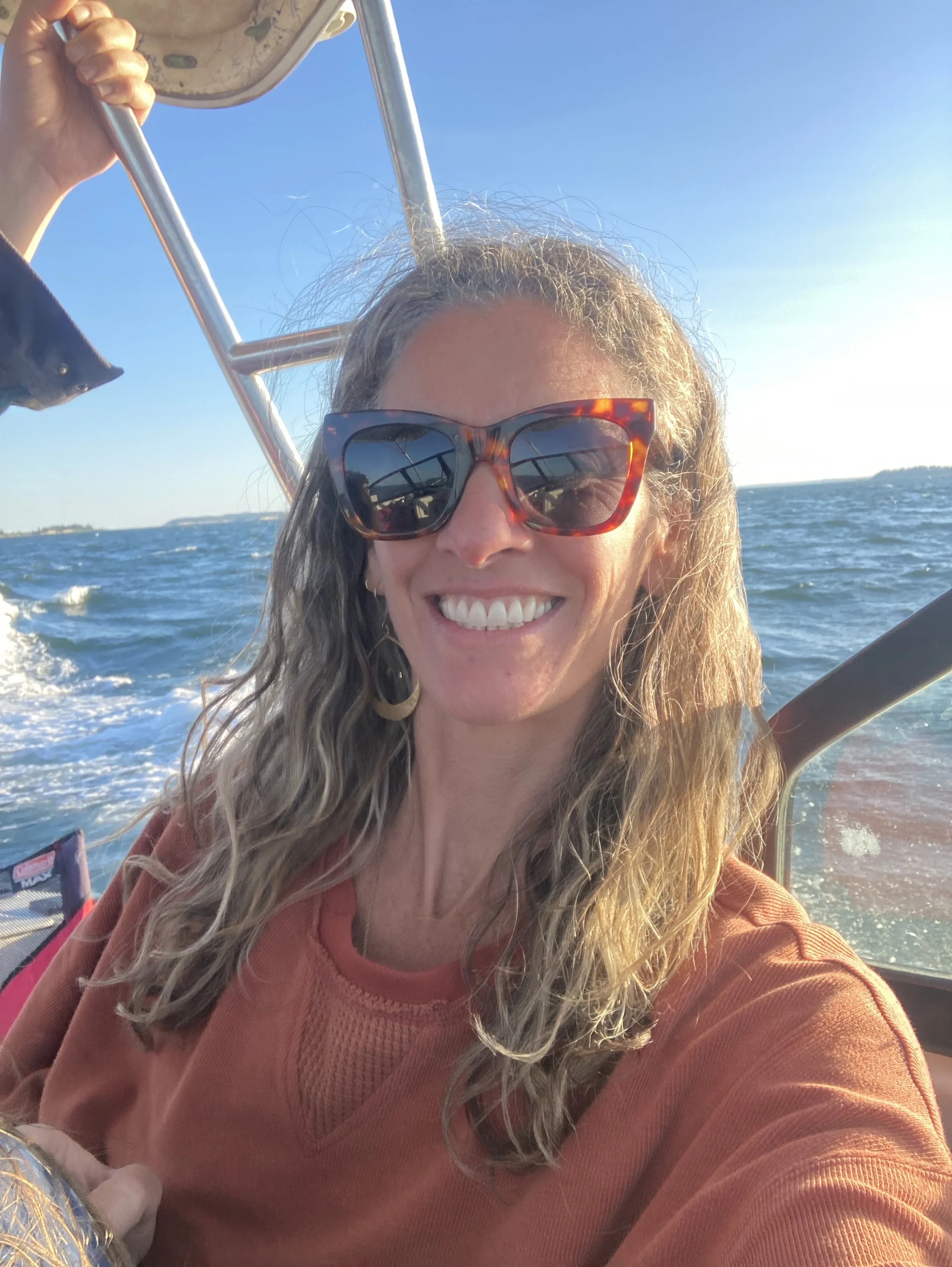
Learn how ocean climate action is benefitting people across the country.
“On island communities like Vinalhaven, high waters are threatening essential infrastructure like the ferry docks.”
— Michelle Kaufman, Inland Ocean Coalition | Maine
“We’ve all seen the recent news about ocean temperatures skyrocketing due to climate change, and in Maine it’s no different. Our state may be known for its long, cold winters, but the Gulf of Maine is warming faster than 97% the world’s ocean surface. That spells trouble for Maine’s renowned seafood industry, underpinning our coastal economies, tourism and our livelihood.
Fishing is a way of life in Maine, but as ocean temperatures rise, lobster and cod are moving farther north and east to find the colder waters they prefer. That means fishermen are having to follow and work longer days, burn more fuel and brave rougher seas to earn their livelihood. Climate change is also making our waters more acidic, which affects the ability of lobster and other shellfish to grow and mature enough to be caught in the first place. According to one 2021 study of the Gulf of Maine, “continued warming is expected to lead to a loss of heritage, changes in culture, and the necessity for adaptation.””
“While Arizona may lack a coastline, our connection to the ocean is undeniable.”
— Melissa Jung, Marine Scientist | Arizona
“The ocean absorbs one-fourth of global carbon dioxide emissions and captures 90% of the excess heat that these emissions generate, making it warmer and more acidic.
By expanding renewable offshore energy, and reducing the climate impacts from seagoing ships that currently generate significant carbon emissions, we can reduce climate impacts to the ocean and protect American communities that live far from the ocean’s shore.”
“the decisions made today will shape the world we inherit tomorrow.”
— Maanit Goel, EarthEcho Youth Leadership Council Member | Sammamish, Washington
“As a young person, I am acutely aware that the decisions made today will shape the world we inherit tomorrow. In Washington, we have a strong slate of ocean climate action champions like Sen. Maria Cantwell and Rep. Derek Kilmer who helped secure this much needed funding. Unfortunately, some in Congress are seeking to undo this progress — something our communities, ocean and climate cannot afford.
It is crucial that we continue to support and advocate for these initiatives, recognizing that climate action is necessary now to ensure a livable planet in the future. I’m looking forward to working collectively to build a sustainable and prosperous future, where our oceans thrive, coastal communities flourish, and clean renewable energy powers our progress.”
“one good look at communities in North Carolina uncovers the dire reality of our environmental situation.”
— David Yoon, EarthEcho Youth Leadership Council Member | Greenville, North Carolina
“Growing up in eastern North Carolina as a teenager, I have enjoyed spending my free time and family vacations at the beach. Our coast offers a wide range of beaches and rich history that have attracted travelers since the early 1900s. But each year, I worry about how much longer this tradition can last as our iconic beaches are being slowly depleted and succumbing to rising temperatures and sea levels.
Climate change is happening in our oceans and on our coasts. While many believe the effects of climate change are minimal and ignorable, one good look at communities in North Carolina uncovers the dire reality of our environmental situation. In Rodanthe, the rapid rate of coastal erosion and rising sea levels upends life among natural species creating an imbalance of habitat and wildlife. Homes are literally being washed away into the ocean.”
“Projects like these are an integral part of a holistic approach to resilience in South Carolina and are vital to our state’s future.”
— Zach Bjur, EarthEcho Youth Leadership Council Member | Greenville, North Carolina
“South Carolina needs to prepare its ports for the future as well, a fact that the Office of Resilience recognizes in its recent recommendation to incorporate resilience in port infrastructure planning. The federal government is providing $3 billion for the Environmental Protection Agency’s clean ports program that will help decarbonize shipping and electrify our ports, keeping South Carolina’s ports on the cutting edge and improving air quality and public health in the frontline communities around them. Some of our state’s ports have already benefited from these investments, with the State Ports Authority receiving federal grants to purchase electric tugboats and barges that reduce emissions and fuel costs for the Port of Charleston, but South Carolina must be intentional in pursuing more funding.
These examples could, and should, be the first of many as South Carolina builds resilience into its coastal infrastructure and throughout the state. The Office of Resilience’s recommendations cannot fall on deaf ears. South Carolina must do everything possible to take advantage of the Inflation Reduction Act and the Infrastructure Investment and Jobs Act so our state is prepared to weather an uncertain future.”
“Taking action gives us hope for a just and livable future where our communities and our citizens CAN THRIVE in a changing climate.”
— State Rep. David Gomberg | Oregon
“New ocean-climate and conservation investments in Oregon’s coast and communities demonstrate the kind of opportunities we have to fight and adapt to climate change and be better stewards of our lands. Taking action gives us hope for a just and livable future where our communities and our citizens cannot just survive, but thrive, in a changing climate.”
“thanks to funding in the inflation reduction act, there is renewed hope.”
— Jean Flemma, Ocean Defense Initiative | Oregon
“The benefits of these projects will be felt by those communities that need it most, including climate frontline neighborhoods and communities of color. Across the US, these communities are more likely to live in floodplains and often lack infrastructure with sufficient drainage capacity. Adding insult to injury, beach loss impacts underserved communities more than others. Requirements that federal funding be matched with private dollars made support for resiliency projects out-of-reach for many of these communities. These new investments end that cycle of inequity, stipulating that matching funds are not required.”















